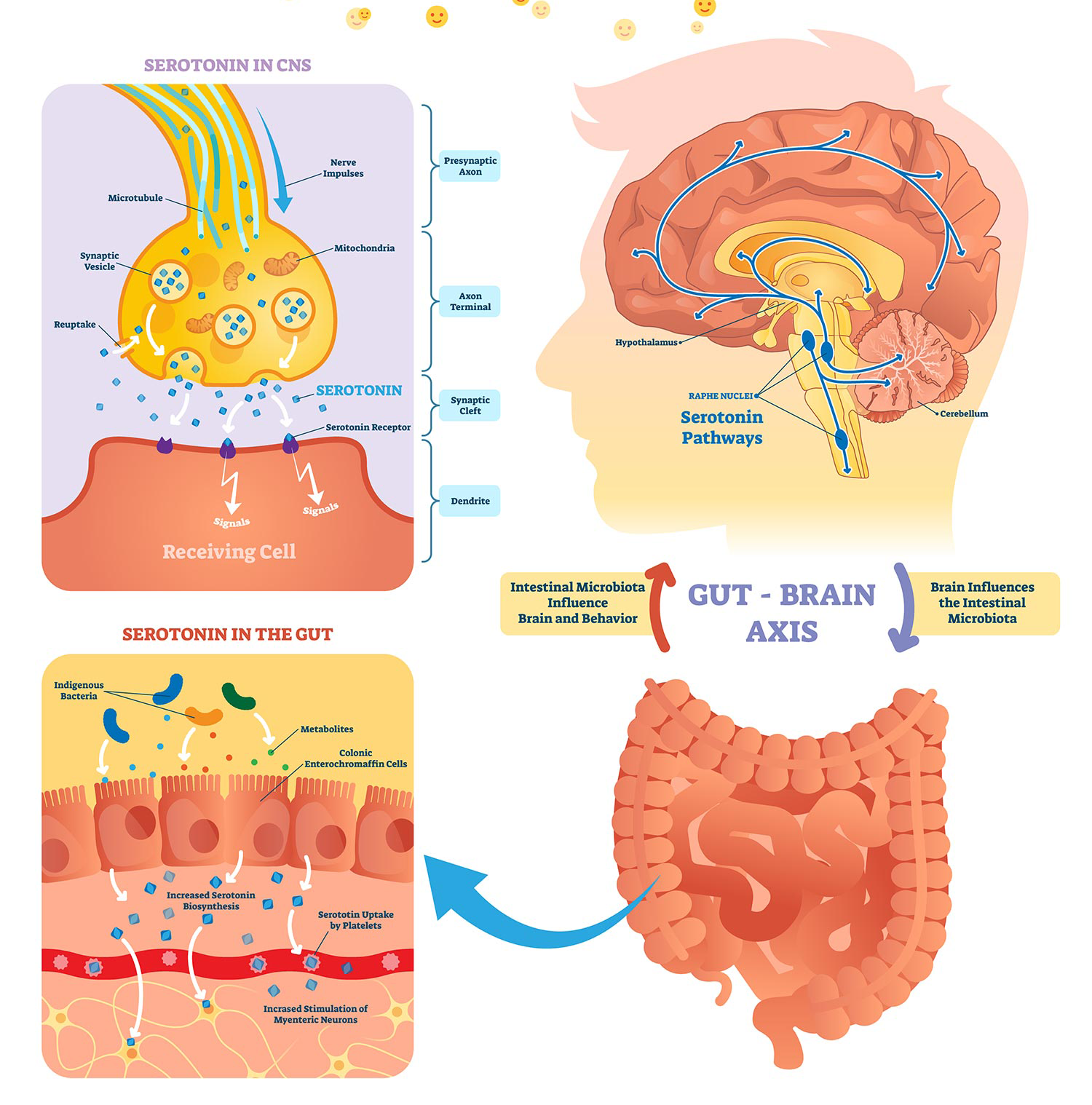
Serotonin vs. Dopamine vs. Oxytocin: What’s the Difference?
Philosophers have debated for centuries what “happiness” really means, but for biologists, it comes down to brain chemicals: specifically, serotonin, oxytocin, endorphins, and dopamine. Sometimes called “the happy hormones,” these neurotransmitters are responsible for communicating thoughts, emotions, and feelings like euphoria, connection, desire, and pleasure. In other words, happiness! They also support biological processes involved in learning and memory, sleep, digestion, etc.
So, whether you’re sharing a meal with loved ones, cuddling with your puppy, or posting on social media, these chemical messengers are involved in how you view, interpret, and interact with the world around you.
But serotonin, oxytocin, endorphins and dopamine are not words that they can use interchangeably. These feel-good chemicals each have a very different role in managing your mood, emotions and motivation.
Here’s how each of these neurotransmitters works—and how you can boost your levels to get more of those warm-and-fuzzies in your life!
What’s the difference between dopamine, serotonin, oxytocin, and endorphins?
These chemicals each act in different ways to convey the experience of happiness and pleasure.
Dopamine: Supports feelings of reward and motivation.
Serotonin: Helps maintain emotions.
Oxytocin: The “love” hormone gives you a rush of pleasure from affection and connection.
Endorphins: A surge of pleasure, often in response to occasional discomfort or stress (think of how you feel after biting into something spicy yet delicious!)
How can I get more of these happiness chemicals?
Maintaining healthy serotonin, dopamine, and oxytocin levels start with your daily choices. Your body makes these chemicals from the nutrients in the foods you eat. So, following a diet like the MIND diet that supports brain health is key—and certain foods are more involved with specific neurotransmitters than others.
Beyond diet, here are additional tips to promote optimal levels of each of these neurotransmitters.
Do I need more dopamine or serotonin?
The best way to know whether you need more dopamine or serotonin is by taking a lab test. As with anything in life, balance is key. And the good news is that by being proactive about your health, you can adjust your daily habits and support healthy neurochemical levels.
Pro tip: Once you get your lab test results, discuss your numbers with your doctor to find the best way to support your happy hormone levels.
How are dopamine and oxytocin connected?
Research suggests the “love hormone” oxytocin can impact dopamine pathways to enhance feelings of reward and motivation. Think about a parent hugging a child to reinforce positive behavior: affection and rewards are at play.
Studies have also shown that oxytocin and dopamine play a vital role in critical thinking and cognition. Preclinical evidence suggests that oxytocin and dopamine are major contributors to the bond you form with your partner and the intense affection you feel when you look into their eyes.
Does oxytocin increase dopamine?
Potentially. Preclinical studies suggest that oxytocin activity in the hypothalamus, a gland in the brain that regulates the hormone systems, contributes to dopamine release. Dopamine released in these pathways supports the brain’s reward systems, resulting in positive feelings.